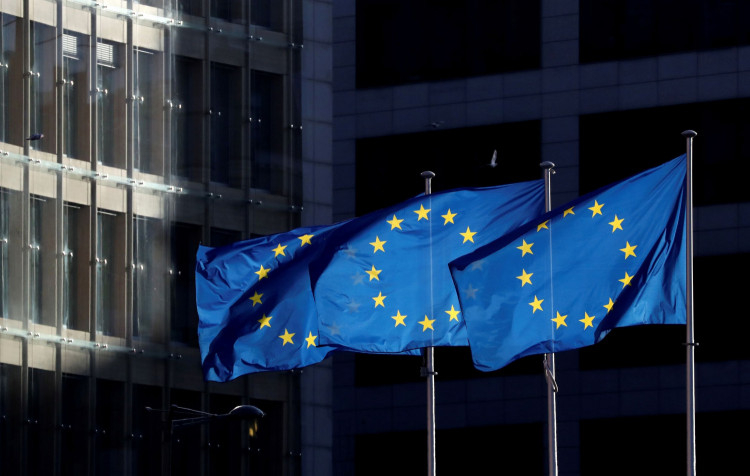The Eurozone's economic outlook remains grim as the manufacturing sector continues to contract, signaling a potential recession on the horizon. Data released by S&P Global on January 2 reveals that the final Eurozone Manufacturing Purchasing Managers' Index (PMI) for December registered at 44.4, a marginal improvement from November's 44.2 but still well below the 50-point mark separating growth from contraction. This persistent downturn marks the 18th consecutive month of contraction for the Eurozone's Manufacturing PMI, casting a shadow over the region's economic prospects.
A survey conducted in early December suggests that the 20 countries comprising the Eurozone are likely to face a brief recession during the winter months. The Eurozone's economy already displayed signs of strain, contracting by 0.1% in the third quarter, with no discernible improvement in the fourth quarter. This consecutive decline in GDP puts the Eurozone on the cusp of a technical recession, a scenario that is increasingly difficult to ignore.
Cyrus de la Rubia, Chief Economist at Hamburg Commercial Bank, encapsulated the prevailing sentiment, stating, "With the Eurozone's manufacturing sector continuing to languish, the PMI has barely improved compared to November, painting a bleak picture for the Eurozone and indicating it entered a recession in the third quarter."
The sub-indices within the PMI report further underscore the challenges facing the manufacturing sector. While there has been a slight easing in the decline of new orders in December, the overall situation remains dire. The new orders index has scarcely budged throughout 2023, reflecting ongoing reluctance among buyers and a subdued market environment. Additionally, the index for unfinished orders suggests that much of the factory activity in December was geared towards completing backlogs rather than initiating new projects. The low confidence among manufacturers is also evident from the fact that Eurozone manufacturing firms have been reducing staff for seven consecutive months, a trend that exacerbates economic concerns.
Germany and France, two of the Eurozone's economic powerhouses, continue to report troubling PMI figures. France's final Manufacturing PMI in December stood at 42.1, merely a 0.1 increase from November and marking a 43-month low. Germany's PMI was slightly better at 43.3, up by 0.2 from the previous month, representing a new high over the past eight months yet still indicative of contraction.
As the Eurozone teeters on the edge of a recession, the prolonged contraction in manufacturing highlights the need for effective policy responses to stimulate growth and restore confidence. The persistent downturn not only reflects the immediate challenges facing the manufacturing sector but also raises concerns about the broader economic health and resilience of the Eurozone. With each passing month of contraction, the path to recovery becomes increasingly fraught, demanding careful navigation and decisive action from policymakers and industry leaders alike.






